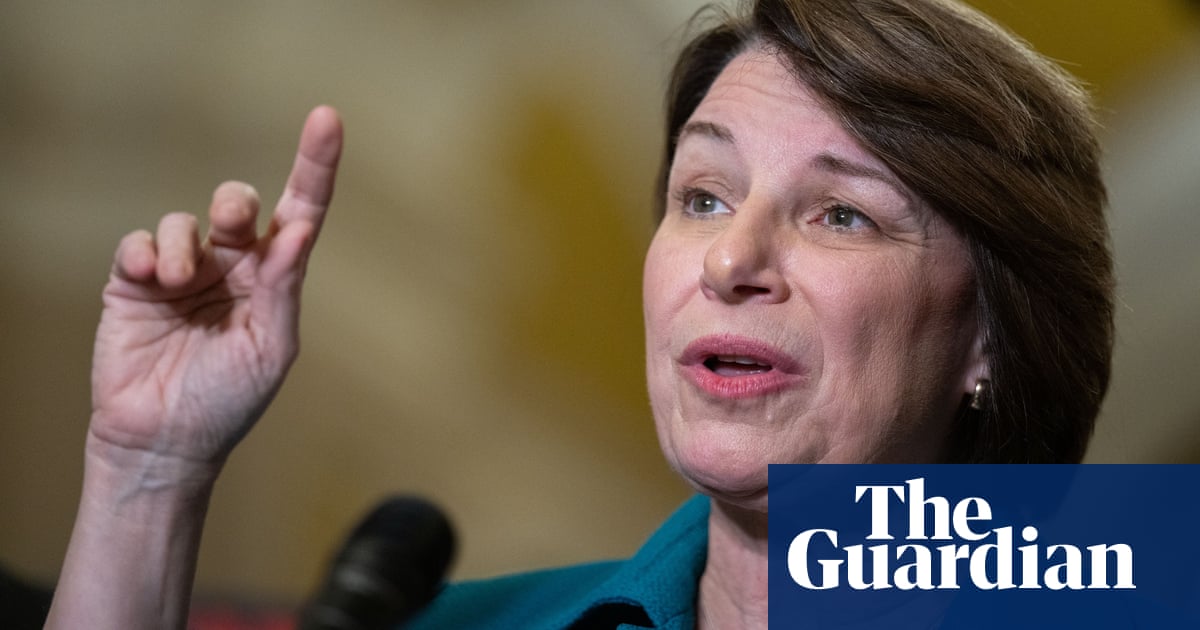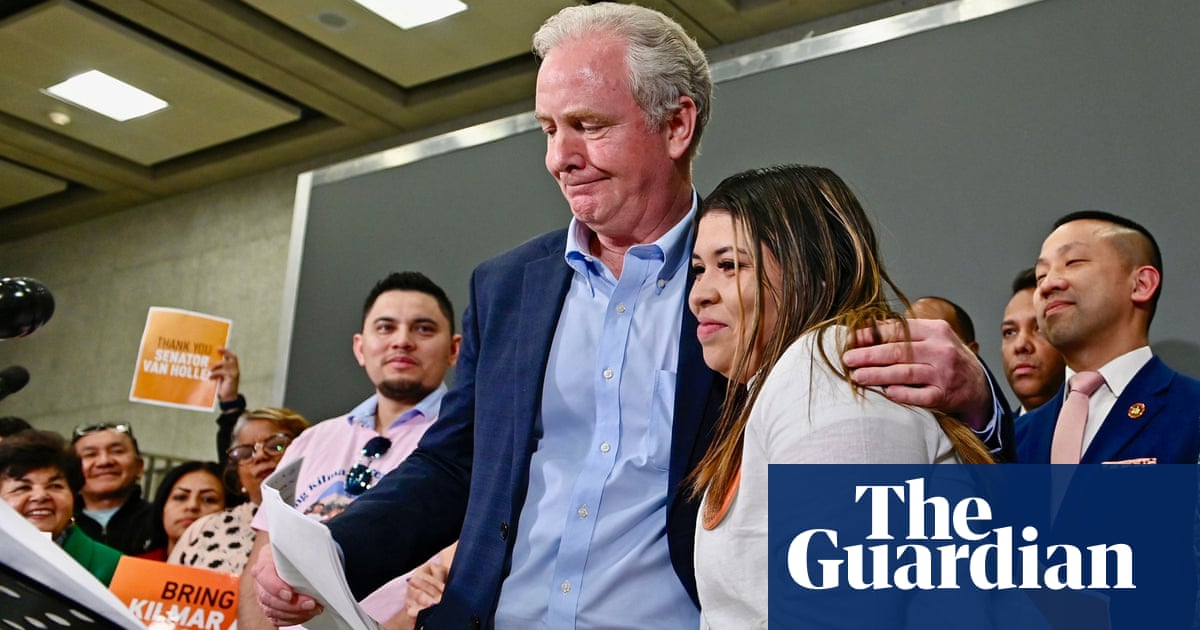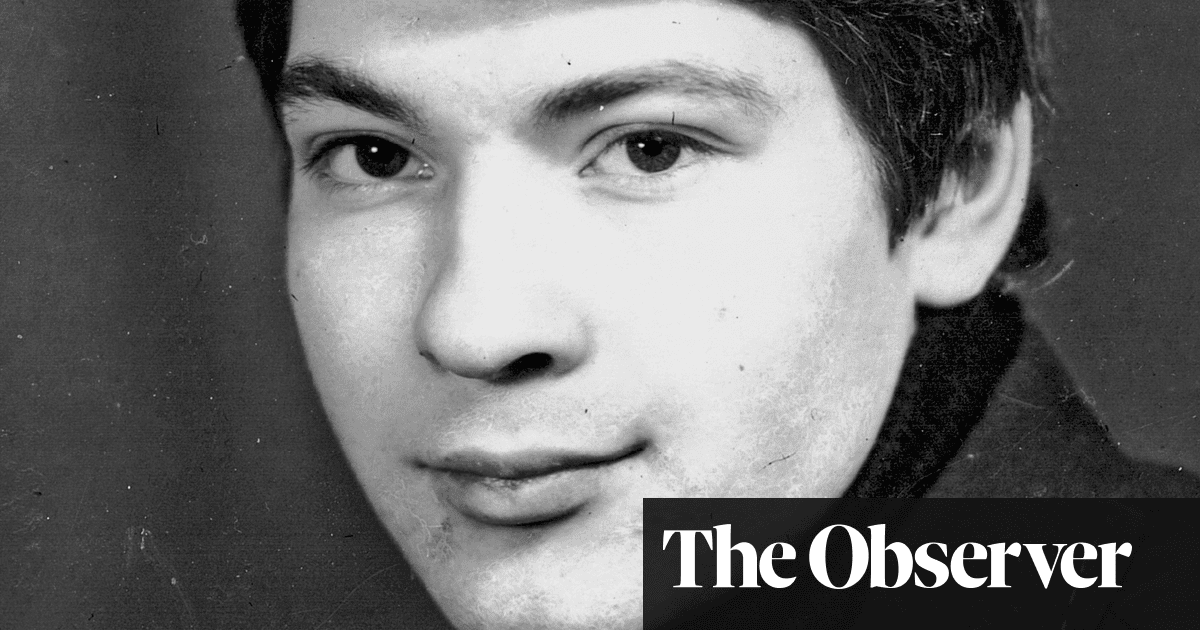Despite the terrible box office performance, and movie theatres cancelling screenings, Americans are at least talking about the Robbie Williams biopic, Better Man.
“I hate this movie, and I haven’t even seen it … it makes me angry and I don’t know why!” complains TikTokker Jasmine Dayra, one of thousands posting similar videos. Others claim they’ve been “gaslit” into believing he’s a huge star, or that the film is the result of “the Mandela effect”, a false memory shared by a large group of people. “I just found out Robbie Williams is real,” says one angry poster.
This sense of seething affront has arisen because a film on general release in the US is a biopic about a popstar most Americans haven’t heard of. Aside from the song Millennium which was a radio hit in 1999 (and doesn’t even feature in the film), Williams has always struggled to make it in the US.
More confounding is that Williams is portrayed by a CGI chimpanzee, and voiced by the real Williams. As one person on X put it: “Robbie Williams had a huge hit here in 1999 … So Brits need to understand that to us this movie is like a Lou Bega biopic but for some reason he’s an iguana.”
For uninitiated Americans reading, Robbie Williams rose to fame in the British boyband Take That before going solo and becoming one of the most famous men in the UK, as well as a star in Australia, Europe, much of Asia and Latin America (in Argentina, for example, he had sex with the model Amalia Granata, who became a celebrity by revealing the story on television and eventually levied her fame into becoming a congresswoman). He has sold 75m records worldwide – only the Beatles have more number one albums in the UK – and his 1997 hit Angels was for years the most requested pop song at British funerals.
Williams was the perfect star for an era of shiny-floor Saturday night TV shows and tabloid newspapers, known as much for his answering-back-to-teacher cheek as his platinum-selling albums, which were all pilloried by the serious music press. But in recent years his peerless pop songwriting – particularly his work with his longterm collaborator Guy Chambers – has been reappraised, with even Vice describing him as “the Eucharist of live entertainment”.
If you want to learn more, you’re in luck: Better Man is the third telling of Williams’ story in the space of a year. November 2023 saw the release of a four-part Netflix docuseries that focused on the singer’s panic attacks, extreme drug use and disastrous move into comedy-rap during the peak of his solo career in the 2000s. Two months ago, the BBC released an outstanding three-part documentary, filled with unseen footage from deep in the archives, on the history of the British boyband. Williams was a central contributor, narrating his own career in Take That as well as analyising the imitators that came later. Those seven hours of documentary can be added to the two biographies of Williams by the legendary Smash Hits writer Chris Heath, which are two of the best books about fame’s destabilizing effect on the human psyche you’ll ever read.
You might fairly assume that the baggie of Williams’ life story has already been emptied and licked clean. But Better Man is the richest telling yet, an unusual and emotive biopic that centers Williams’ relationships with his father and his ex-girlfriend, the singer Nicole Appleton from All Saints (a British girlband even less famous in the US than Williams). Their relationship lasted less than a year but provides the film’s emotional core, especially the abortion Appleton was forced into having by her management and record company.
Having Williams depicted by an ape is so surprisingly effective that you almost forget about it after 10 minutes; it would have been far worse had the role been played by some Rada graduate doing a dodgy accent. But it’s also a reflection of Williams’ continuing desire to be the centre of attention. The animated element allows him to provide the speaking and singing voice for his own life story, a move not seen since Eminem’s 8 Mile (and that wasn’t technically a biopic, as Eminem played Jimmy Smith Jr, a character heavily based on his own life). It works: only Robbie Williams can really capture the unique charisma of Robbie Williams.
Still, it’s far from perfect: the over-reliance on CGI renders scenes about abortion and self-harm strangely Pixar-fied, and the voiceover from Williams, delivering unexceptional post-hoc reflections about his depression and addiction, suggests that while he has found the right director to tell his story, he could do with a better shrink. But overall the film is taut and entertaining with an unlikely message for such a mainstream multiplex musical: that fuck-ups remain fuck-ups, bad fathers don’t redeem themselves, and you can either accept people with their painful flaws or face oblivion.
Reviewers tend to agree. New York Magazine praised its “blazing, restless inventiveness” and the Washington Post said the director Michael Gracey “has managed to reinvent the biopic”. There are plenty of sops to American viewers too, with characters going to great lengths to explain that playing Knebworth is a big deal and the value placed by Britain’s chart-focused music industry on having a No 1 single.

Unfortunately, very few people will find that out for themselves: Better Man cost about $110m to make and was acquired by Paramount for US distribution for a further $25m. Much of that budget went into the expensive CGI to render Williams as a 3D chimpanzee, but there are also huge dance and concert sequences, for one of which the film-makers closed the whole of Regent Street in central London to film. The film grossed a paltry $1.1m in the US opening weekend; it’s supposed to be going on more general release this week but some cinemas are scaling back plans to screen it. I rewatched it on a Tuesday evening at a Manhattan cinema where the audience was made up of only one couple (plus my gaggle of ex-pat friends – among them serious journalists, writers, artists and film-makers who applauded after the musical numbers. One said they had goosebumps hearing the opening bars of Let Me Entertain You play over the Paramount logo at the start).
A large portion of that huge production outlay won’t be as dear as some have reported, as the Australian government covered a chunk of the costs through subsidies and film funds (the film was mostly made in the Australian state of Victoria and Gracey is Australian). Even so, Better Man’s performance is anaemic in territories where Robbie is a star, grossing only $11.5m worldwide as of Wednesday. Paramount seems unlikely to recoup the money it has spent on press, advertising and distribution in the US.
This is not the end of the indignities for Williams. Even a bad box office run could have led to a decent showing on streaming services if the publicity campaign had gone well in the US. But Williams’ best chance of breaking through was to be nominated for best original song at the Oscars, which, even if he didn’t win, would have allowed him to perform at the ceremony. Better Man, which contains a mix of Williams’ biggest hits and a couple of covers, cynically includes one new song, Forbidden Road, that was duly longlisted for the award, only to be disqualified by the Academy’s music branch last month for incorporating “material from an existing song that was not written” for the movie.
The song it supposedly ripped off? The 1973 Jim Croce song I Got a Name with lyrics by Norman Gimbel and music by Charles Fox. One of the governors of the Academy’s music branch in 2025? That would be Charles Fox. Talk about bad luck.
But the US has long been Williams’ white whale.

In 1999, British musicians had fallen out of favour in the US, with the Spice Girls (at No 99) the only British act in the Billboard 100. But, the Wall Street Journal reported at the time, there was good news on the horizon: “Among the current crop of British acts, there are high hopes for Robbie Williams, a former member of ‘boys band’ Take That who is being carefully groomed for his US launch beginning next month”. Unlike previous flops, one UK industry expert assured us: “Capitol Records (part of EMI) is spending a lot of time setting him up. They’re consciously avoiding a campaign of UK hype; we’ve been there before, and it hasn’t delivered.”
But time after time, Williams’ attempts to break through in the US were scuppered. By 1999, Robbie had already left Take That, struggled to get a solo career off the ground and then gone stratospheric with a string of hits that included Angels, Millennium, No Regrets and Let Me Entertain You. At this point he went on a 25-date tour of North America, where audiences seemed bewildered by his cheeky humour and his obsession with his arse/ass.
While Millennium was a minor US radio hit, and his debut US album sold a perfectly decent 600,000 copies, Robbie never became a star. His self-deprecation failed to translate in a country where popstars sang their own praises. Williams can’t even wait till he finishes a song to poke fun at himself. In live performances he talks to the crowd in the gaps between lyrics, constantly puncturing any moments of earnestness.
In 2003, having signed him to one of the biggest record deals of all time, worth £80m (roughly $150m at the time), EMI tried again and failed to make much headway. A few years later the hits dried up for Williams even in the UK and EMI, the storied label of the Beatles and the Rolling Stones, was eventually sold to its rival Universal in part because of its bad bet on Wiliams breaking out in the US. The New York Times, writing about the folly at the time, said: “Mr Williams’s music and personality are too imbued with over-the-top British humor – a hybrid of Monty Python and the British comedian Ali G, who poses as a white gangsta rapper – to capture the fleeting attention of American youth.”
Instead of trying to make it bigger, Williams spent much of the 2010s enjoying his anonymity in the US. He married an American actor, Ayda Field (best-known as Jeannie in Aaron Sorkin’s Studio 60 on the Sunset Strip), and moved to Los Angeles where he was able to live a life of relative normalcy.
But this third failed attempt to break the US has been the most costly and arguably the biggest shame, because Better Man is a movie worth seeing. Even the TikTokkers who bothered to actually see it mostly loved it. “I’ve never heard of Robbie Williams,” screeches the creator Alex Colemann in one video, “but I watched it, I took a leap of faith and it paid off 10-fold … This shit slaps.”

 3 months ago
57
3 months ago
57













































